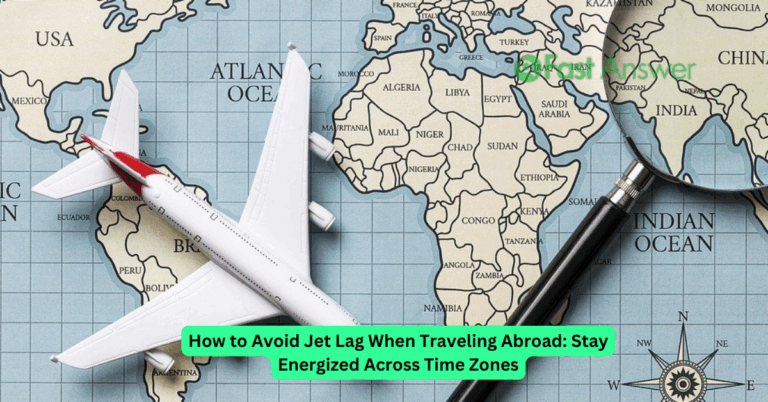How to Plan a Budget-Friendly Travel Itinerary: Explore More Without Overspending
Traveling doesn’t have to drain your bank account when done right, it can be both enriching and affordable. The secret lies in smart planning, strategic timing, and knowing where your money goes. If you’re wondering how to plan a budget-friendly travel itinerary that still delivers unforgettable experiences, you’re not alone. Whether you’re a solo adventurer, couple, or family looking to stretch your funds, this guide is for you. It breaks down how to build a cost-effective itinerary without compromising the quality of your trip, giving you the freedom to travel more often and stress less about money.
Start with Destinations That Offer More for Less
Not all destinations are created equal when it comes to value. Choosing places where your currency stretches further such as parts of Southeast Asia, Eastern Europe, or Central America can significantly lower your overall travel expenses. Research the average costs for accommodation, food, transportation, and attractions before locking in your location. Additionally, consider traveling during shoulder seasons where prices are lower but weather and activities are still favorable. Prioritizing cost-effective destinations allows you to experience more for less without sacrificing quality or comfort.
Optimize Your Daily Schedule Around Free and Low-Cost Activities
Your itinerary doesn’t have to be packed with expensive tours or paid experiences to be fulfilling. Many cities offer free walking tours, public parks, open-air museums, and cultural festivals that are just as memorable as paid attractions. Start by listing your must-see spots and then look for nearby alternatives that offer similar value for less. Group activities by location to minimize transportation costs and time. Budget-friendly travel isn’t about skipping fun it’s about choosing the right kind of fun that aligns with your financial plan.
Use Budget Tools to Map Out Expenses in Advance
A well-planned itinerary is only as strong as its budget. Use travel planning apps or spreadsheets to allocate daily allowances for categories like food, lodging, activities, and local transport. Set a realistic cap for your total trip cost and then break it down by day or region. Factor in hidden costs like foreign transaction fees, tipping, or luggage storage. Budgeting tools help you stay on track and adjust spending in real time, so you don’t overspend early in the trip and feel restricted later on. Planning this way turns money management into a tool for freedom, not a limitation.
Mix and Match Accommodations to Stay Within Budget
Your lodging can make up a big portion of your travel costs but it doesn’t have to. Instead of booking a single type of accommodation for your entire stay, mix it up. Alternate between budget-friendly hostels, locally-run guesthouses, and occasional splurges on comfort when it matters most. Use platforms that offer discounts for longer stays or last-minute bookings, and consider shared lodging if you’re open to social experiences. Not only does this approach reduce costs, but it also gives you a more diverse and immersive experience of each location.
Save Big by Eating Smart and Traveling Like a Local
Dining and transportation are two daily expenses where savings add up fast. Choose street food, local eateries, or supermarkets instead of tourist-facing restaurants. Eat where locals eat, and you’ll find better value and authentic flavors. For transportation, skip taxis and use public transit passes, shared rides, or even walking when feasible. Some cities offer tourism cards that combine free transit and discounted attractions. Traveling like a local isn’t just affordable it connects you more deeply with the culture and everyday life of your destination.
Frequently Asked Questions
Can I plan a great trip with a very limited budget?
Absolutely. With careful planning, flexible choices, and a focus on low-cost destinations and experiences, even a small budget can create a memorable adventure.
How far in advance should I plan a budget trip?
Start at least 1–3 months ahead. Early planning gives you better deals on flights and accommodations and more time to research cost-effective options.
Is it cheaper to book everything yourself or use a travel agent?
Doing it yourself is usually cheaper, especially for budget travel. Online tools make self-planning easy and allow more control over pricing.
What’s the best way to keep daily expenses under control while traveling?
Track your spending daily using apps or journals. Set limits for meals, attractions, and extras, and adjust as needed to stay within your budget.
How can I avoid tourist traps that drive up my costs?
Avoid businesses located right next to major landmarks, research in advance, and ask locals for recommendations to find authentic, affordable options.


